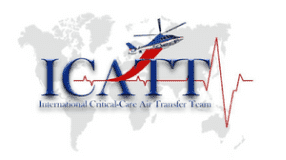Organ donation is one of the greatest gifts a human being can leave behind; not only do they get to live again, but they also give new life to the recipient. If transported and transplanted at the appropriate time, one single donor can save eight lives, and the tissue from the donor can be used for almost 50 people in need.
There is a crisis due to organ shortages or lack of timely transfer. Hence, the waiting list in hospitals is long, and so is the mortality rate. This organ shortage deprives thousands of patients of leading a renewed life and skyrockets the cost of life support treatments like dialysis. However, the situation is slowly changing, and in this blog, we will learn why?
Under what scenarios is an Organ Transplant needed?
One of the major reasons for an organ transplant is genetic conditions such as polycystic kidney disease, cystic fibrosis, or a heart defect. Other not so known reasons for an organ transplant are hepatitis, traumatic injuries causing major damage to organs, and chronic cases of diabetes. On average more than 100,000 adults and roughly 2,000 children need organ transplants every year.
Why is organ transplant transport rising in India?
For every organ, the transplant process varies slightly, but finding a matching donor is a consistent theme. Over the past decade, the rate of organ donation has risen from 0.08 per million to more than 0.8 per million population. India is leading in developing programs for kidney, liver, heart, lung, pancreas, and small bowel transplantation, along with hand and uterus transplants. Due to various policies, some states are recording donation rates as high as 3 to 4 per million population.
Increased awareness
All across India, various programs are being organised to raise awareness towards organ transplantation, such as:-

- Implementation of educational programs for the hospital staff
- Rewarded gifting for the family of the deceased or the living donor,
- Developing a generous system where an organ donor donates to an unknown recipient.
- A well-regulated and controlled system of financial payment for the donor.
Several committed NGOs are continuously working with civilians to raise awareness regarding organ donation. They also work towards removing various misconceptions around organ donation and transplantation as well. States like Rajasthan, West Bengal, started active organ donation programs and is teaching organ transplantation at medical institutes. Recording of organ donation status on the driving licence has helped increase the number of organ donors.
The active role of Central and State governments in Organ Transplant
Did you know that India has an act that lays down the ground rules for organ transplantation, known as HOTA – Human Organ Transplantation Act? HOTA is now known as THOTA – Transplantation of Human Organs and Tissues Act. The Act spells out clinical benchmarks for deceased donation standards in India. The Act also has stringent, rigorous penalties against commercial organ trafficking. This Act started a new era in organ transplantation in India, and now India is one of the world’s largest organ transplantation countries. Various processes like brain death audit, establishing organ retrieval centres, and developing a well-connected network for smooth transportation of organs at the state and regional level have largely streamlined the once complicated process. Green corridors have been set up in crowded cities for quicker transportation of donated organs. States like Karnataka and Telangana simplified the inquest and post-mortem procedures while respecting the emotions of the families of the organ donor.
Increased Affordability
In India, the standard of living is increasing each day. Along with that, due to advanced surgical techniques, the success of organ transplants is also increasing, which can save precious human life. Due to well-regulated norms of cost for an organ transplant, more and more patients and their families can afford it. If the donor is a beloved family member, then the cost is much less. All the above factors contribute to the rise in organ transportation in rural and urban Indian cities.

Possibility of timely transfer of organs – ICATT
Time is a crucial factor in Organ transplantation. ICATT’s trauma emergency response team handles organ transportation services. Compared to all other modes of medical transport services, air ambulance services are the most effective due to the short-lived nature of the valuable donated organ. ICATT handles all emergency organ transport services for sensitive organs like kidneys, liver, heart, etc.
The medical team in the air ambulance ensures a minimal ischaemic time of transport to the transplantation centres. We undertake safe transfer to both domestic and international transplant centres.
ICATT’s transportation services medically diagnose the donor’s organs and take care of all non-medical formalities. The organs are then surgically removed and preserved, upon which they are safely transferred to the transplantation centres.
Need immediate organ transplant transport services? Contact us at ICATT for the best organ transport company in India. Call us@ +91-9701111156.







